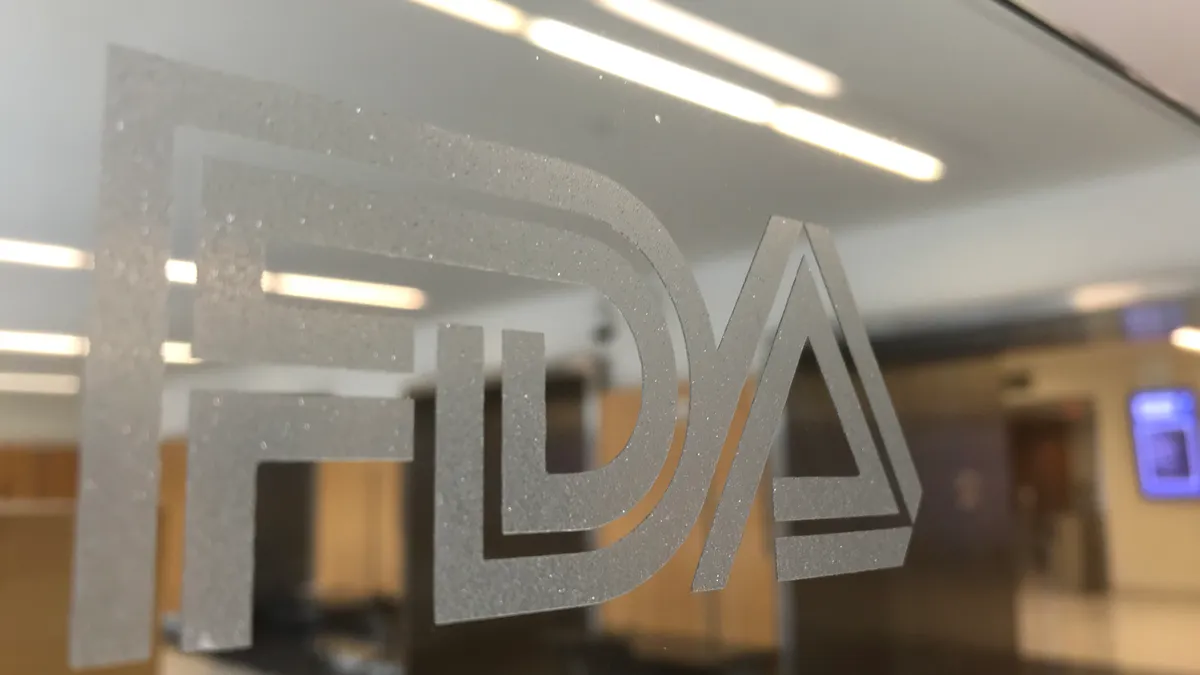Dive Brief:
- Medtech company GI Scientific won 510(k) clearance this month for an adjunctive device meant to shield the distal end of a reusable duodenoscope from becoming contaminated, it announced Thursday.
- In the U.S., duodenoscopes are annually used in about half a million potentially life-saving procedures known as endoscopic retrograde cholangiopancreatography (or ERCP) to diagnose and treat problems in the pancreas and bile ducts, according to FDA. The GI Scientific device is cleared for use with Olympus' TJF-Q180V duodenoscope, which it estimates is used in 85% of such procedures.
- The marketing authorization follows U.S. regulators urging hospitals to adopt duodenoscopes with disposable components in response to cleaning challenges during reprocessing that have resulted in a spate of multi-drug-resistant bacteria infections.
Dive Insight:
The sterility of reusable duodenoscopes — bendy, lighted tubes that can be maneuvered through the mouth, throat and stomach into the small intestine — was thrust into the spotlight this year on revelation of dozens of related patient infections, some resulting in death. The probe into adverse events with the devices followed FDA sending warning letters to top manufacturers Olympus, Fujifilm and Pentax last March for failing to adequately carry out post-approval studies assessing effectiveness of reprocessing the devices.
The agency took a firm stance in August, formally recommending hospitals and endoscopy facilities transition away from using fixed endcap duodenoscopes.
"The FDA believes the best solution to reducing the risk of disease transmission by duodenoscopes is through innovative device designs that make reprocessing easier, more effective, or unnecessary," the agency said in an August safety communication.
The GI Scientific device works by attaching to a reusable scope and creating a barrier that reduces biomatter dirtying the distal end of the scope during use while also sealing the "elevator area" of the scope and creating a passageway through which instruments can enter the GI tract without touching the elevator.
The company said the mechanism "is analogous to a physician wearing gloves for surgery, which along with vigorous scrubbing and washing before and after the procedure, protects both the patient and the surgeon from contamination and potential infection."
GI Scientific CEO Scott Miller, who formerly held strategy roles at Covidien and Edwards Lifesciences, said study data on the device's efficacy will be published in the coming weeks.
The company is not partnered with Olympus, Miller told MedTech Dive. But he said the technology has drawn "interest" from larger firms, and its infection control ability could be adapted to other scopes and indications for which it may pursue later regulatory clearances.
The device is likely to compete with other products coming onto the market in reaction to infection concerns.
Boston Scientific said in a quarterly update to investors Wednesday its Exalt-D single-use duodenoscope "remain[s] on track" for an end-of-year launch. CEO Michael Mahoney said the company will kick off a postmarket clinical trial of the device in the first quarter of 2020.
And Cook Medical in May said it would distribute a disposable duodenoscope produced by Danish manufacturer Ambu, but its introduction may come as late as September 2020.
Additionally, Pentax and Fujifilm each hold clearances for disposable endcap duodenoscopes.
Compared to competitors' devices, Miller argues the newly cleared add-on device will save hospitals money by allowing them to continue using their existing scopes, and benefit physicians by allowing them to continue using devices with high-quality optical function and with which they're familiar.
"They sometimes say the link between a scope and the physician is like a world-class tennis player to their preferred racket," Miller said.
FDA is set to convene an advisory panel in November to further discuss how to best stymie the infections.













